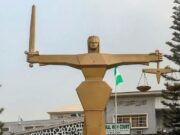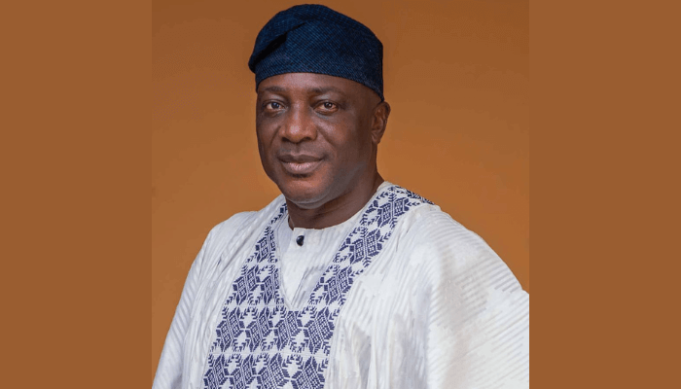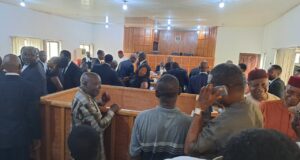Hon. Olugbenga Edema, the gubernatorial candidate of the New Nigeria People’s Party (NNPP) in Ondo State, has filed a suit in the Federal High Court, requesting the court to direct the Independent National Electoral Commission (INEC) to remove Governor Lucky Aiyedatiwa of the All Progressives Congress (APC) and his deputy from the list of candidates for the upcoming gubernatorial election.
In the suit, filed through his lawyer Abayomi Ojo, Edema seeks an interpretation of Section 15 of the Third Schedule of the 1999 Constitution, as amended, regarding the nomination process of APC candidates.
He argues that the nomination of Aiyedatiwa was illegal, claiming that the APC primary election held on April 20, 2024, was unconstitutional and did not comply with the provisions of the Electoral Act, 2022.
The case, filed under Suit No. FHC/AK/CS/103/2024, names INEC as the 1st Respondent, APC as the 2nd Respondent, and Aiyedatiwa and his deputy as the 3rd and 4th Respondents, respectively.
Edema is asking the court to annul the publication of Aiyedatiwa and his deputy’s names by INEC, citing alleged violations of the Electoral Act.
The suit contends that, according to Section 84(13) of the Electoral Act, INEC is obligated to exclude the names of candidates whose nominations come from an invalid primary.
Edema claims the primary election was flawed, providing evidence through Exhibits NNPP02-19, which include reports from various wards and local government areas in Ondo State.
Edema is seeking several declarations from the court:
1. Unconstitutional Publication: A declaration that the publication of Aiyedatiwa and his deputy by INEC is unconstitutional, invalid, and void, based on Sections 15 of the Third Schedule of the Constitution and Sections 82(1)(5) and 84 of the Electoral Act, 2022.
2. Invalid Nomination: A declaration that INEC’s acceptance of Aiyedatiwa and his deputy’s nomination was arbitrary and illegal.
3. Order to Quash Nomination: A request to invalidate the APC candidates’ nomination and publication by INEC, arguing that it contravenes constitutional and electoral law.

















